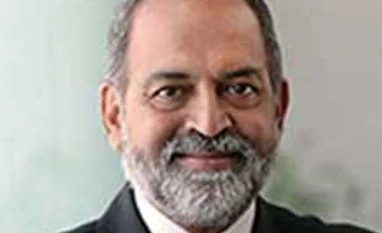Continuing his efforts to fortify the 'Made in India' brand, Prime Minister Narendra Modi on Wednesday hand-picked former McKinsey India chief Adil Zainulbhai to head the Quality Council of India. The agency is an autonomous body charged with becoming one of the world’s top quality facilitation, accreditation and surveillance organisations. The Council is mandated with continuously improving the climate, systems, processes and skills for quality in areas like education, healthcare, environment, infrastructure, governance and social sectors.
Zainulbhai’s appointment sends out the message that the government is serious about improving the reputation and image of India-made products. The appointment is in keeping with Modi's call to make "Made in India" a recognised and trusted brand globally.
When asked by US News on India's position 10 years from now, Zainulbhai said if we have 10 to 15 years of 7 to 8 percent growth, we will take another 300 million people out of poverty. We will have raised people's living standards dramatically. Most of our industries will be five times the size that they are today.
He is now being offered a chance to take India there.
More From This Section
Through a career in consulting, Zainulbhai has advised CEOs of many companies but consultants are also notorious for not shining a light on themselves since their business model is based on discretion and confidentiality.
But here are here are 5 things you must know about Adil Zainulbhai, India’s newest head of Quality.
1) Adil Zainulbhai is a mechanical Engineer from the 1977 batch of IIT-Bombay and a post-graduate from Harvard Business School – he is currently President of HBS’s alumni association in India. He rubbed shoulders with Meg Whitman of eBay and Jeff Skilling of Enron fame during his HBS days – and many others during his long career at McKinsey & Co. In his downtime, when he is not trying out the latest gizmo, he can be found sailing or skiing with his family.
2) Zainulbhai retired from McKinsey India as its chairman after 34 years with the legendary consulting firm, 24 of which were in the US. Zainulbhai joined McKinsey in 1979 straight out of HBS; he set up the Minneapolis, Minnesota, office and later led the McKinsey office in the US capital of Washington D.C., helping clients across sectors as diverse as telecommunications, consumer electronics, energy, banking, infrastructure, and healthcare..
3) Zainulbhai returned to head the India office out of Mumbai in 2004, and is still a senior advisor to the firm, counselling CEOs of some of India’s largest companies across sectors. According to the McKinsey website, he has helped several companies become global leaders and helped leading MNCs build large profitable business in India.
4) He is also deeply concerned with strengthening India’s public sector and contributing to the nation’s development, and works closely with senior government leaders to drive growth and raise living standards. In that sense, his latest appointment is a formal extension of what he has already been doing in as a private citizen. A strong believer in technology, Zainulbhai said in an interview to The Diplomat that technology can help leapfrog developments in key social sectors such as education, healthcare, and financial inclusion.
5) Like many of his global peers, Zainulbhai is also involved with a number of non-profits, providing them with his mentorship and advice. He serves on the boards of such high-profile organisations as American India Foundation – which was famously founded by Indian American business leaders at the behest of then President Bill Clinton in the aftermath of the 2001 Gujarat earthquake – the CII National Council, Saifee Hospital and the Saifee Burhani Upliftment Trust, which is redeveloping Mumbai’s Bhendi Bazaar.
He also serves on the advisory boards of the Indian Institute of Technology Bombay, the Wockhardt Foundation, and the Health Management Research Institute, as well as on the global advisory board of the Booth School of Business at the University of Chicago.
)